Charlemagne became King of the Franks in 768 and set about expanding his empire which, by the time of his death in 814, consisted most of Western Europe. He thus re-united Western Europe under one ruler for the first time since the fall of the Western Roman Empire in late 5th-century. In the year 800, Charlemagne was crowned the first Holy Roman Emperor by Pope Leo III. Named Charles after his grandfather Charles Martel, he was later dubbed by historians as Charles le Magne (Charles the Great), thus creating the name Charlemagne by which he is popular today. Know more about his life, family, conquests, coronation, reign and death through these 10 interesting facts.
#1 HIS FATHER PEPIN THE SHORT WAS FIRST OF THE CAROLINGIANS TO BECOME KING
After the fall of Western Roman Empire in late 5th-century, its vast territory was divided in numerous kingdoms without any central authority. The most powerful of these was Francia, which was ruled by the Merovingian dynasty. Charlemagne’s great-grandfather, Pepin of Herstal, became the de-facto ruler of the Frankish kingdom in 687 AD but the official title of king was still held by the Merovingians. In 751 AD, Charlemagne’s father Pepin the Short was crowned as King of the Franks and thus the Merovingian dynasty was officially replaced by the Carolingian dynasty, which derives its name from Carolus, Latin version of the name Charles Martel, grandfather of Charlemagne.
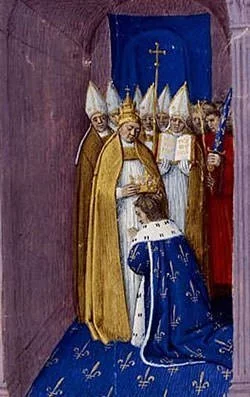
#2 CHARLEMAGNE BECAME CO-RULER OF THE FRANKISH KINGDOM IN 768
The year of Charlemagne’s birth is not known with certainty. It is likely to be 747 or 748. His exact birthplace also remains unknown. It was possibly Liege in present-day Belgium or Aachen in modern-day Germany. Charlemagne was the eldest child of Pepin the Short and his wife Bertrada of Laon. After Pepin’s death in 768, the Frankish kingdom was divided between Charlemagne and his younger brother Carloman. There was political rivalry between the brothers during their co-reign. In 770, to gain an advantage over his brother, Charlemagne married Desiderata, daughter of the king of the Lombard Kingdom of northern Italy, Desiderius.
#3 HE BECAME THE KING OF ITALY IN 774
In 771, within a year of his first marriage, Charlemagne divorced Desiderata and sent her back to her father; and instead married 13-year-old Hildegard, daughter of Count Gerold of Vinzgau. Carloman’s death in December 771, allowed Charlemagne to take control of the entire Frankish kingdom. Meanwhile the relations between the Franks and the Lombards had become sour due to the divorce. This led to the Battle of Pavia in 773–774 between the Franks under Charlemagne and the Lombards under Desiderius. Victory in the battle made Charlemagne rex Langobardorum, the ruler of the Kingdom of Italy.
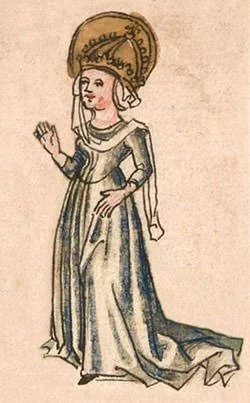
#4 HE WAS INVOLVED IN A LONG RUNNING CAMPAIGN AGAINST MUSLIM SPAIN
The Iberian Peninsula is the region consisting mostly of present day Spain, Portugal, and Andorra. At the time most of it was ruled by Muslim ruler Abd al-Rahman I. Concerned with defending the southern part of his kingdom from Muslim attacks, Charlemagne launched a campaign against Muslim Spain in 778 which continued till the end of the century. He was able to acquire parts of the region and then established Marca Hispanica, which was a defensive barrier between his Carolingian Empire and the Islamic Empire in Iberia.
#5 HIS ONLY MILITARY DEFEAT WAS AT THE FAMOUS BATTLE OF RONCEVAUX PASS
Charlemagne failed to make any headway in his first campaign against Muslim Spain in 778. His retreating army was ambushed by a large force of Basques while passing through the Roncevaux Pass. The Basques’ attack was a retaliation caused primarily by Charlemagne’s destruction of the city walls of their capital Pamplona. In the resulting skirmish, the Basques utterly destroyed Charlemagne’s rear-guard killing many of his close aides in the process. The Battle of Roncevaux Pass is recounted in the Song of Roland, the oldest surviving major work of French literature; and in Orlando Furioso, one of the most celebrated works of Italian literature. It was the only military defeat suffered by Charlemagne during his reign.
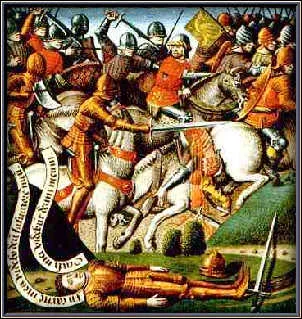
#6 HE REPORTEDLY ORDERED THE MASSACRE OF VERDEN
In 772, Charlemagne started the Saxon Wars which were to last 32 years till the last Saxon rebellion was crushed in 804. In all, 18 battles were fought in what is now north-western Germany. The Saxon Wars resulted in Saxony being added to the Frankish kingdom and the conversion of its residents from Germanic paganism to Catholicism. During the wars, Charlemagne enforced the legal code known as Capitulatio de partibus Saxoniae which prescribed death to Saxons who refused to convert to Christianity. Also, in October 782, Charlemagne reportedly ordered the execution of around 4,500 Saxon prisoners, known as the Massacre of Verden
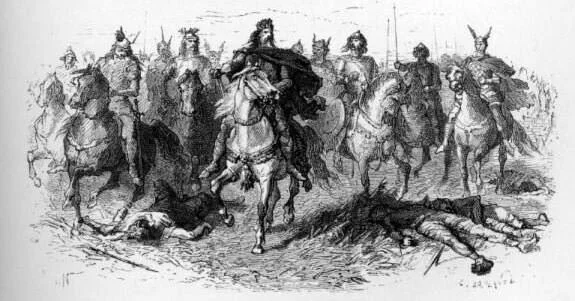
#7 CHARLEMAGNE CONQUERED MOST OF WESTERN EUROPE
Throughout his reign, Charlemagne was involved in constant warfare, expanding his Carolingian Empire and spreading Christianity. Apart from defeating the Lombards in northern Italy, Muslims in Spain and Saxons in Saxony, he also forcibly annexed Bavaria and defeated the Avars in modern-day Austria and Hungary. By the end of his reign, Charlemagne’s conquests had united most of Western Europe for the first time since the fall of the Roman Empire in late 5th-century. He had also ensured the survival of Christianity in the West.
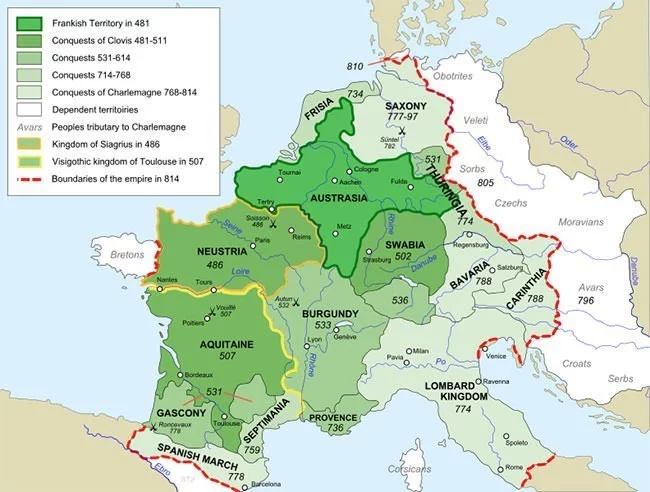
#8 CHARLEMAGNE WAS THE FIRST HOLY ROMAN EMPEROR
In 799, Pope Leo III was physically attacked by a faction of Romans who accused him of adultery and perjury. Leo escaped and fled to Charlemagne, asking him to intervene in Rome and protect him. Charlemagne had Leo escorted back to Rome and in late 800, he himself went to Rome and held a council there with representatives of both sides. On 23 December, Leo took an oath of purgation concerning the charges brought against him, and his opponents were exiled. Two days later, on Christmas Day in 800, Pope Leo III crowned Charlemagne ‘Emperor of the Romans’ in Saint Peter’s Basilica. This effectively undermined Empress Irene, who reigned over the Eastern Roman or Byzantine Empire. It also created a rival Holy Roman Empire in Western Europe, which was to last for many centuries.
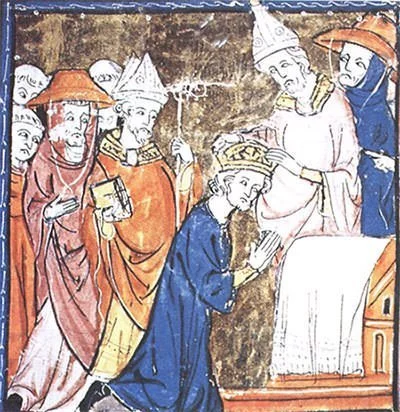
#9 CHARLEMAGNE’S DEATH RESULTED FROM A DISEASE KNOWN AS PLEURISY
Charlemagne died on 28 January 814 of pleurisy, an inflammation of pleura, the lining surrounding the lungs. He was succeeded by his son Louis I, also known as Louis the Pious. Charlemagne spoke the language of the non-Romanised Franks that later grew into German. He probably spoke a Rhenish Franconian dialect. Apart from his native language he also spoke Latin and understood a bit of Greek. He was unable to write and his ability to read has also been questioned. Charlemagne had 4 known wives and 6 known mistresses and with them he had at least 18 children. Among his descendants are the Habsburg and Plantagenet dynasties.
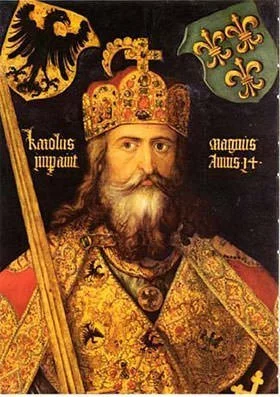
#10 CHARLEMAGNE INITIATED THE CAROLINGIAN RENAISSANCE
Apart from being a skilled military strategist, Charlemagne was also an efficient administrator who introduced reforms which led to prosperity among his subjects and a period of cultural enrichment. He initiated a period which saw the flowering of scholarship, literature, art, and architecture and is known as the Carolingian Renaissance. The Carolingian Renaissance ended a centuries-long period of cultural stagnation known as the Dark Age. The Charlemagne Prize is awarded annually since 1950 by the German city of Aachen to people who promote the idea of western unity by their political, economic and literary endeavors. It is one of the most prestigious European prizes. Due to his contributions in the development of Europe, Charlemagne is called the Father of Europe.

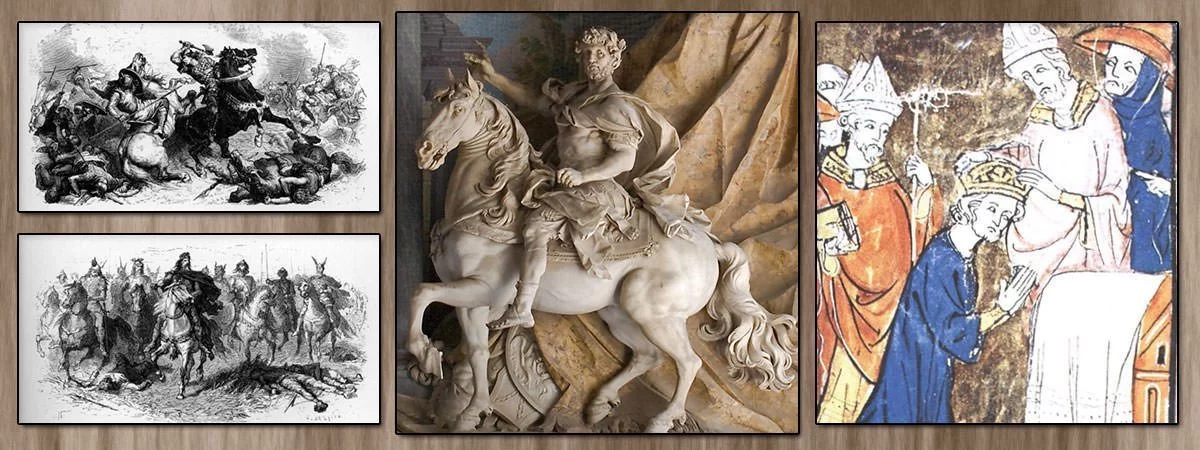
I agree, they really helped
Happy to help.
these are very good facts